Crohn's Disease Bloody Stool
Crohn's disease bloody stool. The etiology of the disease is complex and involves a combination of genetic environmental i. What are the causes of Crohns Disease. Both diseases are characterized by abdominal pain blood and mucus in stool.
Crohns disease is chronic inflammatory bowel disease that primarily can affect any part of the gastrointestinal tract from the mouth to the anus. In patients with Crohns bleeding usually signifies active disease in the large bowel or the. While it tends to cause gastrointestinal symptoms such as bloating flatulence cramping diarrhea nausea vomiting and blood in stools the disease can cause additional symptoms when it affects other systems in the body.
People with Crohns disease sometimes notice blood in their stool or notice bleeding through the anus. Crohns Disease is a chronic illness affecting the GI tract. If it takes place in the colon or rectum there will be more blood present in.
An abnormal immune response and genetic factors are known to play a role in the pathogenesis of Crohns disease which falls under a category of diseases called inflammatory bowel disease because it results in digestive tract inflammation. Rectal bleeding can be defined pretty simply. Undiagnosed inflammatory bowel diseases will lead to chronic abdominal pain and stool changes.
I dont think Ive ever had bloody stools--at least not clearly visible blood--in the 7 years since Ive been diagnosed and Im currently in my fourth month of severe constipation with my current flare. Blood in stool and Crohns disease Bleeding in Crohns disease can vary depending on the location of inflammation. Inflammatory Bowel Diseases IBD.
It is are often diagnosed before the age of 30 and because it is chronic sufferers often go from acute flare ups to long periods of remission. There are two types of IBD. Anorectal fissure associated with IBS-Constipation.
As mentioned in previous columns Crohns disease can affect a patient from head to toe internally and externally and inflammation can lead to an array of symptoms including rectal bleeding. The possible causes of blood in stool with IBS are.
Crohns Disease is a chronic illness affecting the GI tract.
Yes you should see a doctor for blood in your stools whether or not you have Crohns disease. Crohns disease is chronic inflammatory bowel disease that primarily can affect any part of the gastrointestinal tract from the mouth to the anus. The possible causes of blood in stool with IBS are. Ulcerative colitis and Crohns disease. Its bleeding that comes out of your rectum. I dont think Ive ever had bloody stools--at least not clearly visible blood--in the 7 years since Ive been diagnosed and Im currently in my fourth month of severe constipation with my current flare. Yes you should see a doctor for blood in your stools whether or not you have Crohns disease. Bloody stools can occur due to Crohns disease. As mentioned in previous columns Crohns disease can affect a patient from head to toe internally and externally and inflammation can lead to an array of symptoms including rectal bleeding.
To answer one of your original questions and to echo NCOT you do not need to have diarrhea or blood in your stool to have Crohns. Rectal bleeding can be defined pretty simply. Bloody stools can occur due to Crohns disease. Inflammatory bowel disease is a term used to describe 2 diseases. I dont think Ive ever had bloody stools--at least not clearly visible blood--in the 7 years since Ive been diagnosed and Im currently in my fourth month of severe constipation with my current flare. Crohns disease and ulcerative colitis. If it takes place in the colon or rectum there will be more blood present in.
/crohns-disease-symptoms-5b310ede0e23d90036925980.png)
/ibd-symptoms-1942663-color-84819923811f4d978d30621228abdad0.jpg)
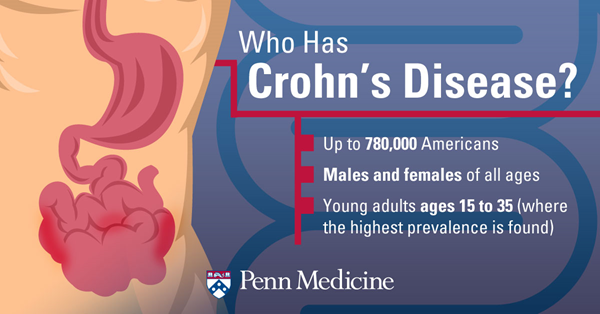

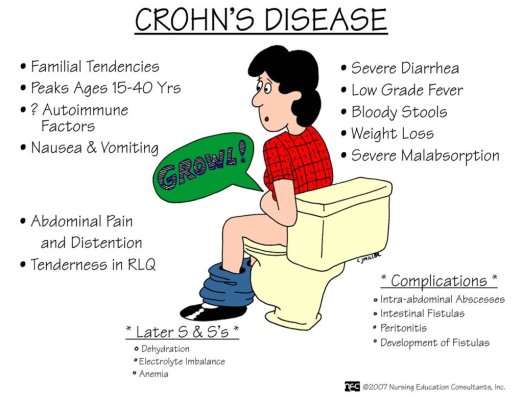
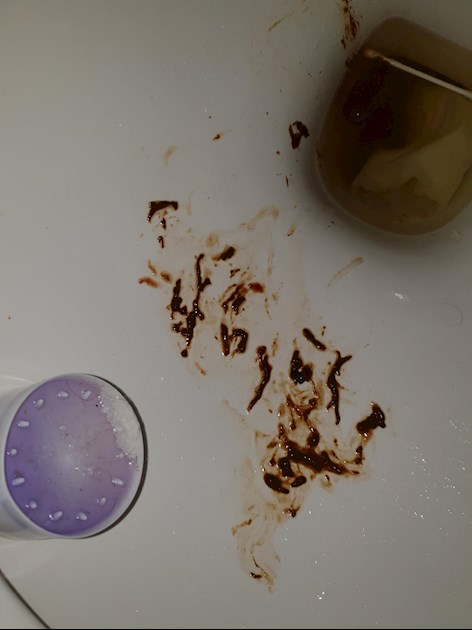
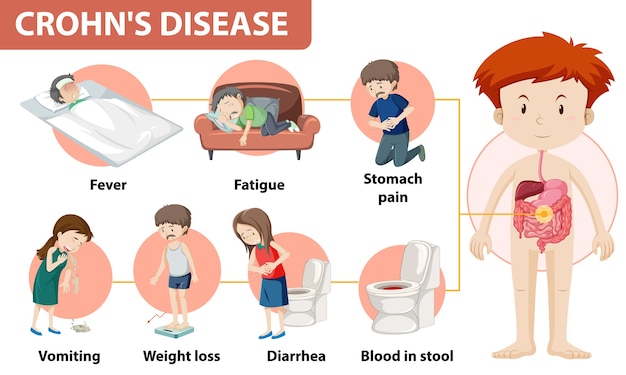

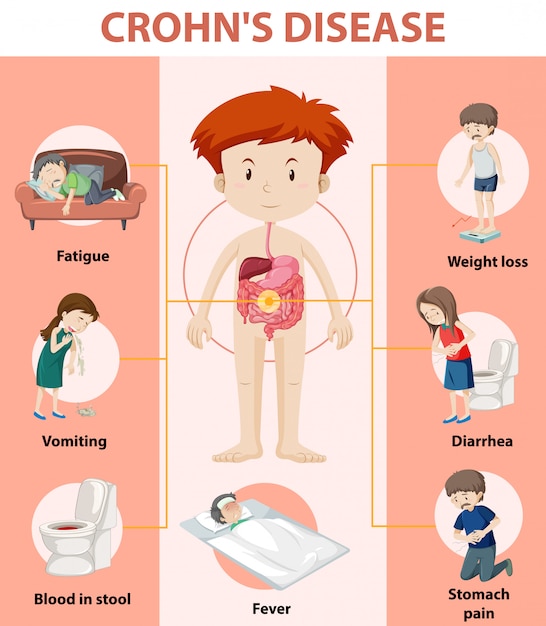

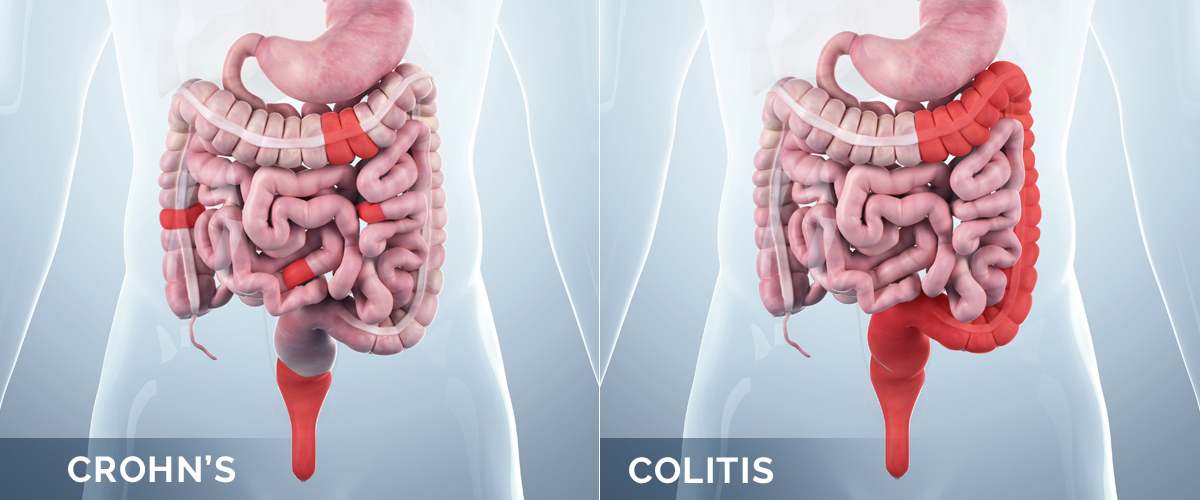
/GettyImages-1141295436-4f52fbde72b14ee8bd7660e29be326ce.jpg)
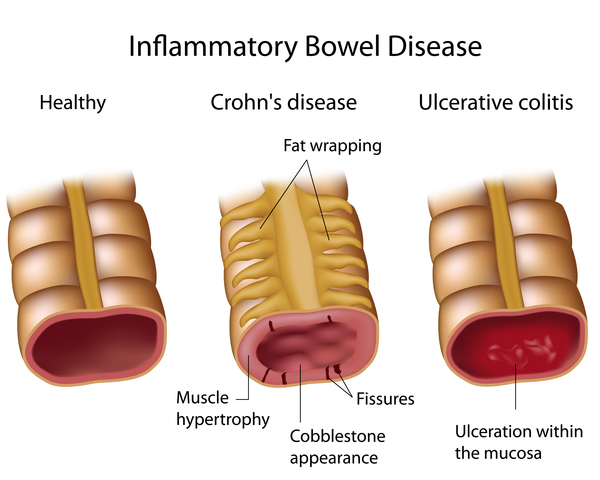
/crohns-disease-diagnosis-5aec9f49c5542e0036b9785c.png)



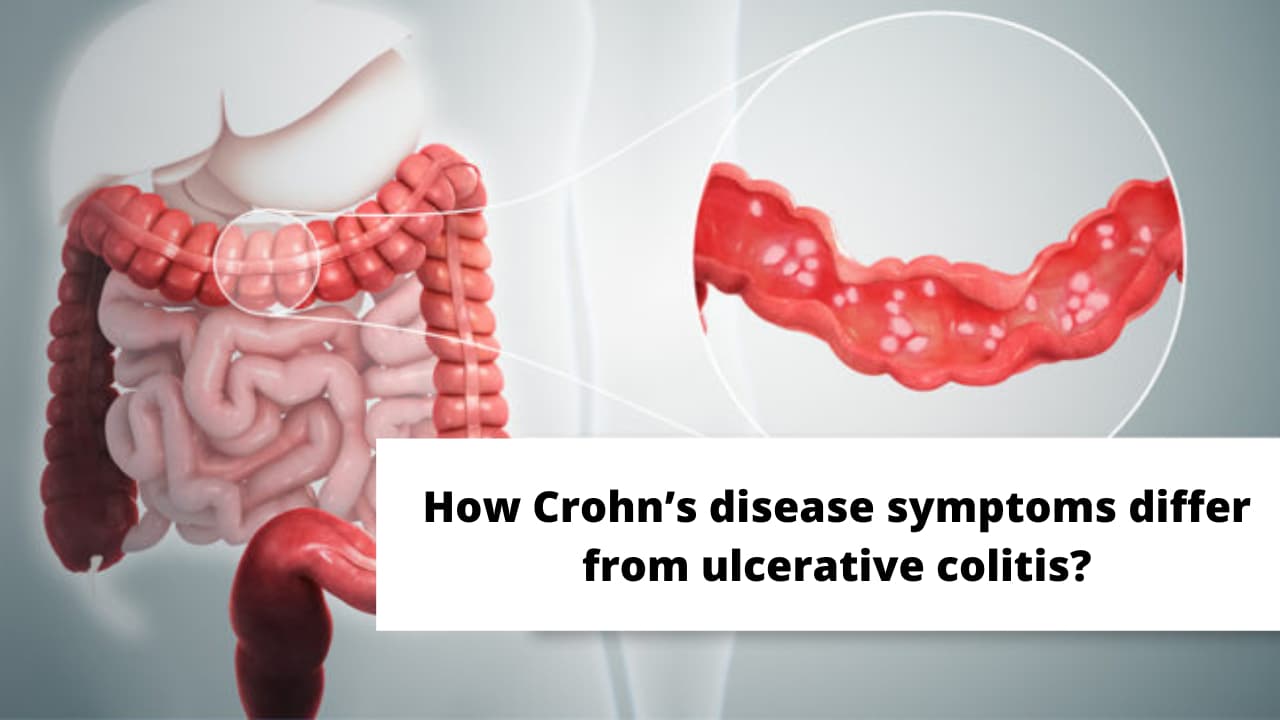
:max_bytes(150000):strip_icc()/causes-of-bloody-stool-1124078_final-a259cc4e3b534ce3baca83a0a2502be1.jpg)

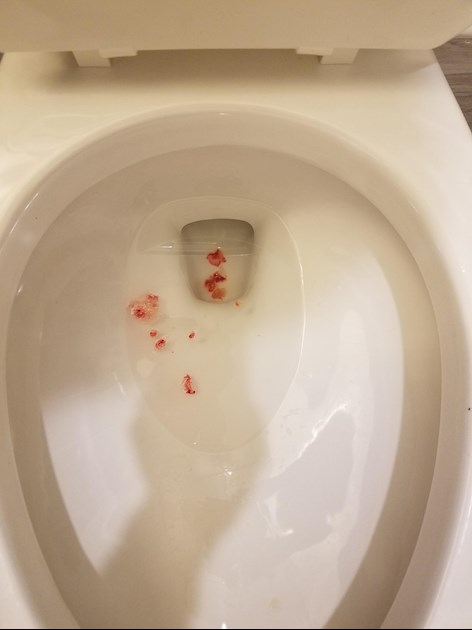
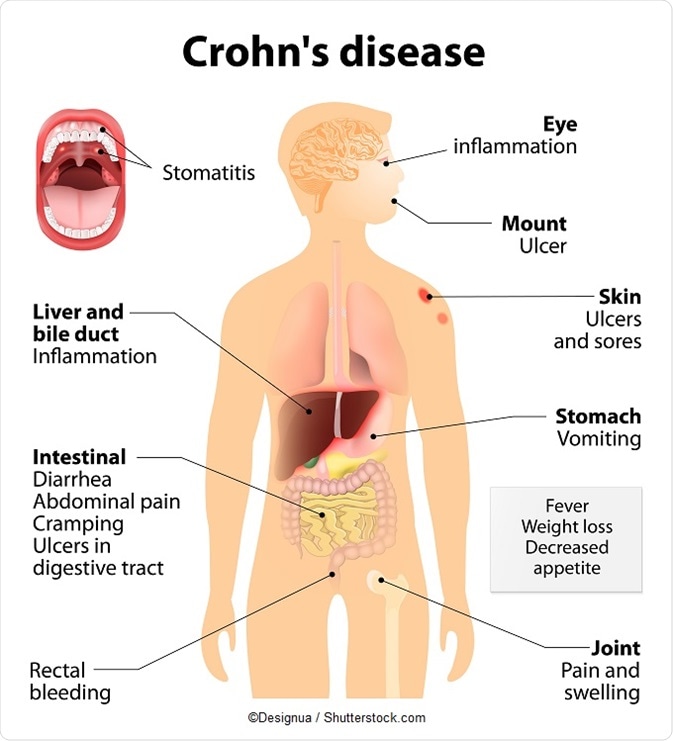

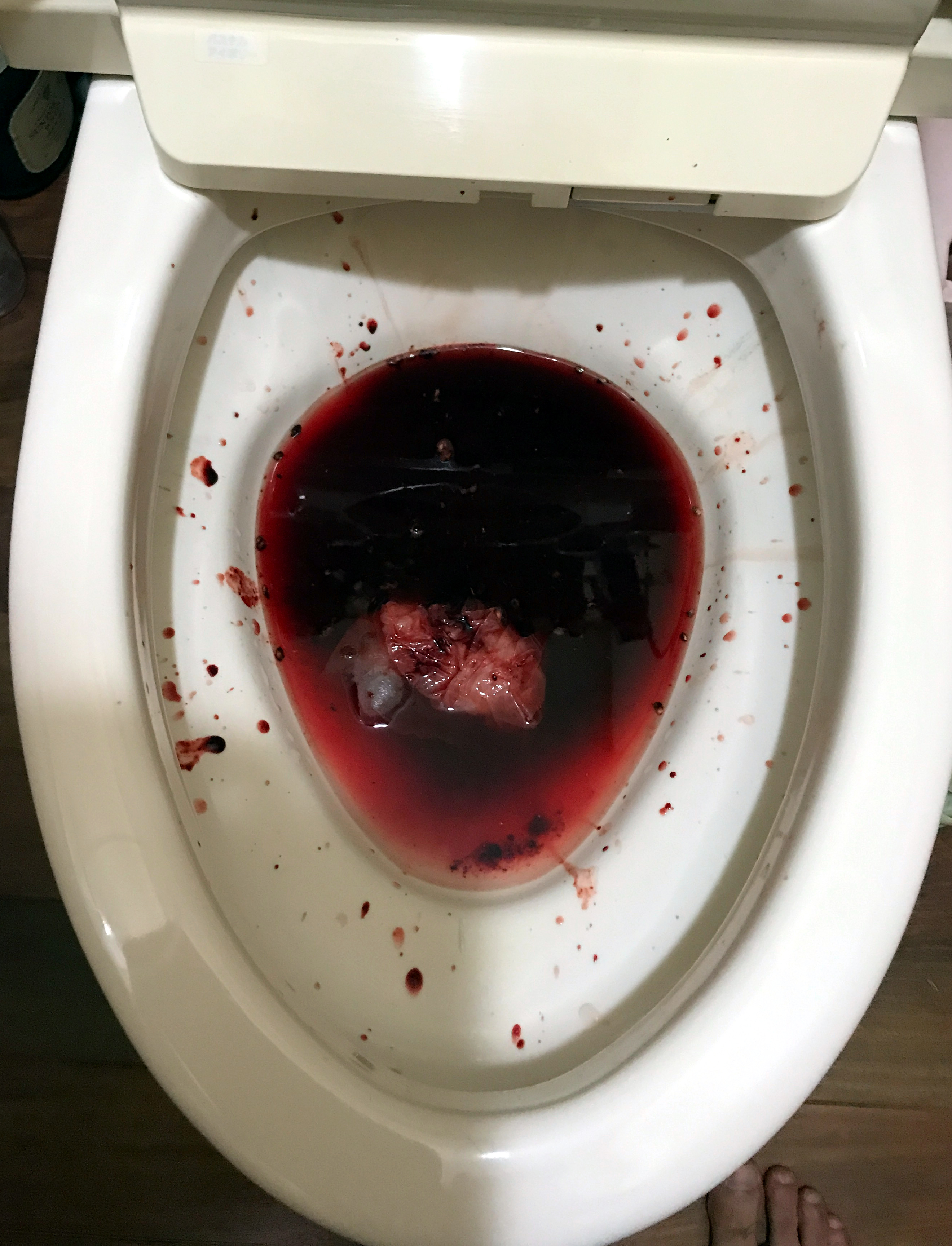


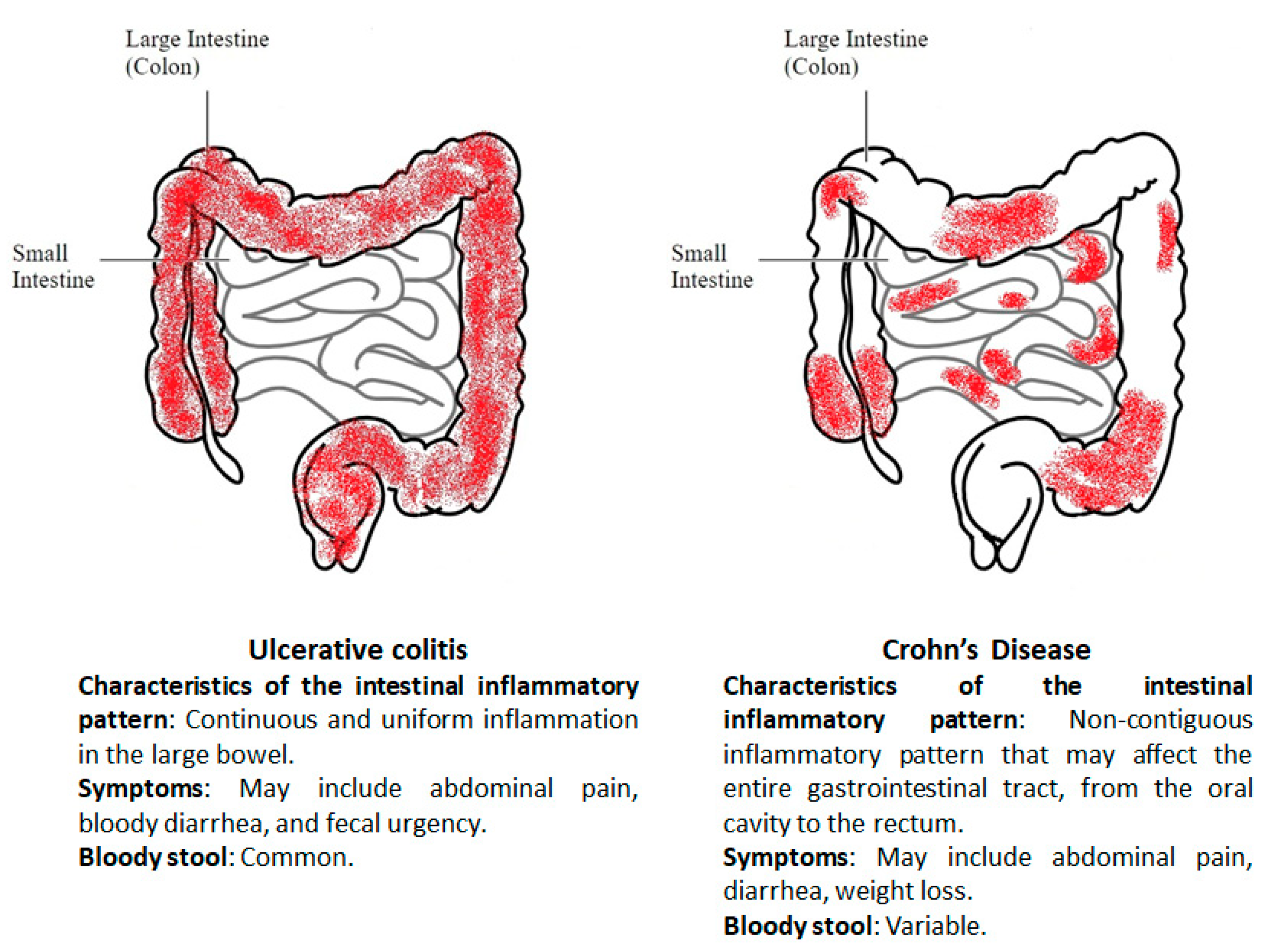


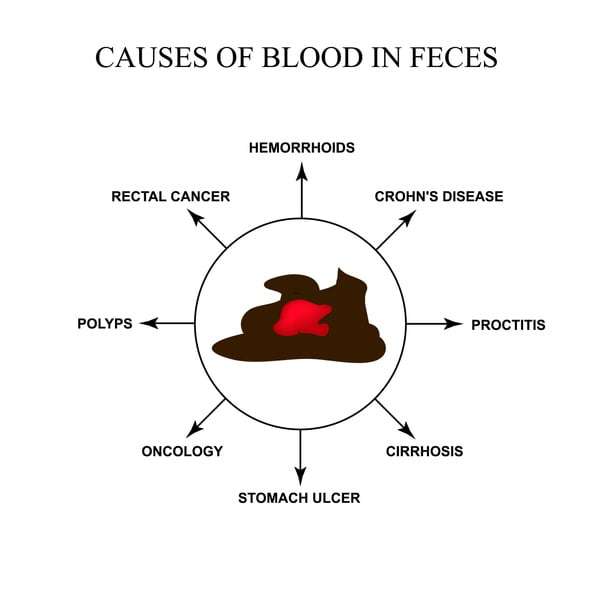








Post a Comment for "Crohn's Disease Bloody Stool"